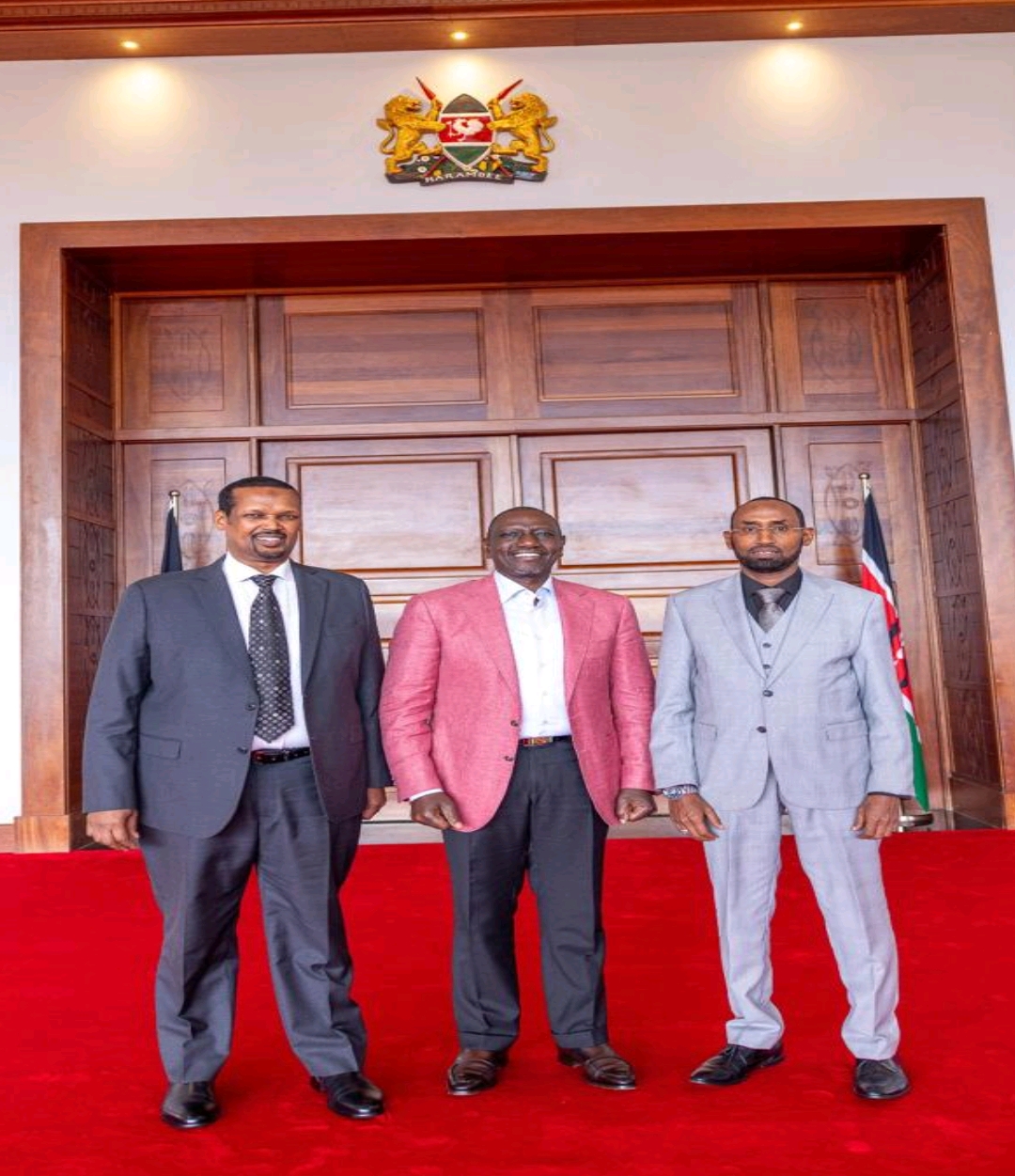 UDM party leader Senator Ali Roba, President William Ruto and Mandera Governor Mohamed Adan Khalif at State House, Nairobi./HANDOUT
UDM party leader Senator Ali Roba, President William Ruto and Mandera Governor Mohamed Adan Khalif at State House, Nairobi./HANDOUT
The political journey of Mandera County—and Northern Kenya at large—has undergone a profound transformation under the 2010 Constitution.
From decades of political marginalisation, the region now finds itself not only participating in but shaping Kenya’s national discourse.
One political vehicle that has emerged from this awakening is the United Democratic Movement (UDM), a truly home-grown party rooted in the aspirations of pastoralist communities.
Mandera County, often referred to as the cradle of UDM, played a decisive role in propelling the party to national prominence.
As pressure mounts from powerful quarters for UDM to fold into the ruling United Democratic Alliance (UDA), it is imperative to reflect on why UDM must retain its distinct identity—even as it remains a loyal partner within the Kenya Kwanza coalition.
UDM’s history is one of courage, ambition, and resilience.
Since 2013, Northern Kenya and Mandera in particular has shifted political allegiances in a remarkable fashion—from URP to the Economic Freedom Party in 2013 and 2017 respectively, and UDM in 2022, which swept the region with commanding electoral victories.
But UDM is not merely a transient political outfit.
It is the first credible attempt by pastoralists and ethnic minorities to create a platform that addresses their unique concerns—from insecurity, drought resilience, infrastructure neglect, to systemic exclusion from national development priorities.
The 2022 elections marked a critical moment.
Though initially aligned with Azimio la Umoja, UDM made a bold decision to shift allegiance to Kenya Kwanza during the parliamentary and Senate Speaker elections.
That decision may have drawn criticism, but it was an act of pragmatic realignment—one that allowed Northern Kenya to stay connected to the levers of national power.
UDM's move not only cemented its strategic relevance but also demonstrated political maturity in placing regional interest above blind loyalty.
Despite being a coalition partner, UDM has faced sustained pressure to dissolve into UDA.
Leaders and UDA operatives from Northern Frontier Counties have repeatedly called on UDM to fold up.
Yet this call ignores the historical context and the legitimate need for regional parties that articulate local concerns.
Every region in Kenya—be it Mount Kenya, Nyanza, or Western—has benefited from home-grown parties that serve as political bargaining chips.
Why should Northern Kenya be denied the same?
The push for political hegemony under one umbrella risks stifling diversity, undermining devolution, and erasing the political voices of minorities.
UDM’s unique positioning—as both a national parliamentary party and a regional movement—is not a contradiction.
Rather, it is a demonstration of how Kenya’s multi-party democracy can serve both national unity and local representation.
Moreover, UDM has not been an obstructionist force.
In fact, it has proven to be a constructive partner in governance.
Its leaders, such as Mandera Governor HE Mohamed Adan Khalif and Senator Ali Roba, have consistently supported government initiatives while also advocating for the rights of marginalised communities.
The party’s firm stance on the revenue sharing formula and equalisation funds demonstrates that UDM remains grounded in principles, not patronage.
At a time when Kenya’s politics risks being monopolised by large umbrella parties, UDM offers a vital counterbalance—a bridge between the centre and the periphery.
Retaining its distinct identity allows the party to continue advocating for the forgotten corners of Kenya—the pastoralist, the borderland resident, and the ethnic minority citizen whose voice often gets drowned in national conversations.
In conclusion, UDM’s dual strategy—supporting the Kenya Kwanza government while maintaining its independent identity—is not only legitimate but essential.
It ensures that Northern Kenya remains visible in Kenya’s political equation and that the dream of inclusive democracy does not become a casualty of expedient unity.
Let UDM be the voice that speaks from the margins, but also one that shapes the centre—from the heart of Mandera County to the corridors of power in Nairobi.
Disclaimer: - Views expressed in this opinion is personal.
The writer is the CECM Lands and Urban Development Mandera.
Email diwanisala[email protected]











